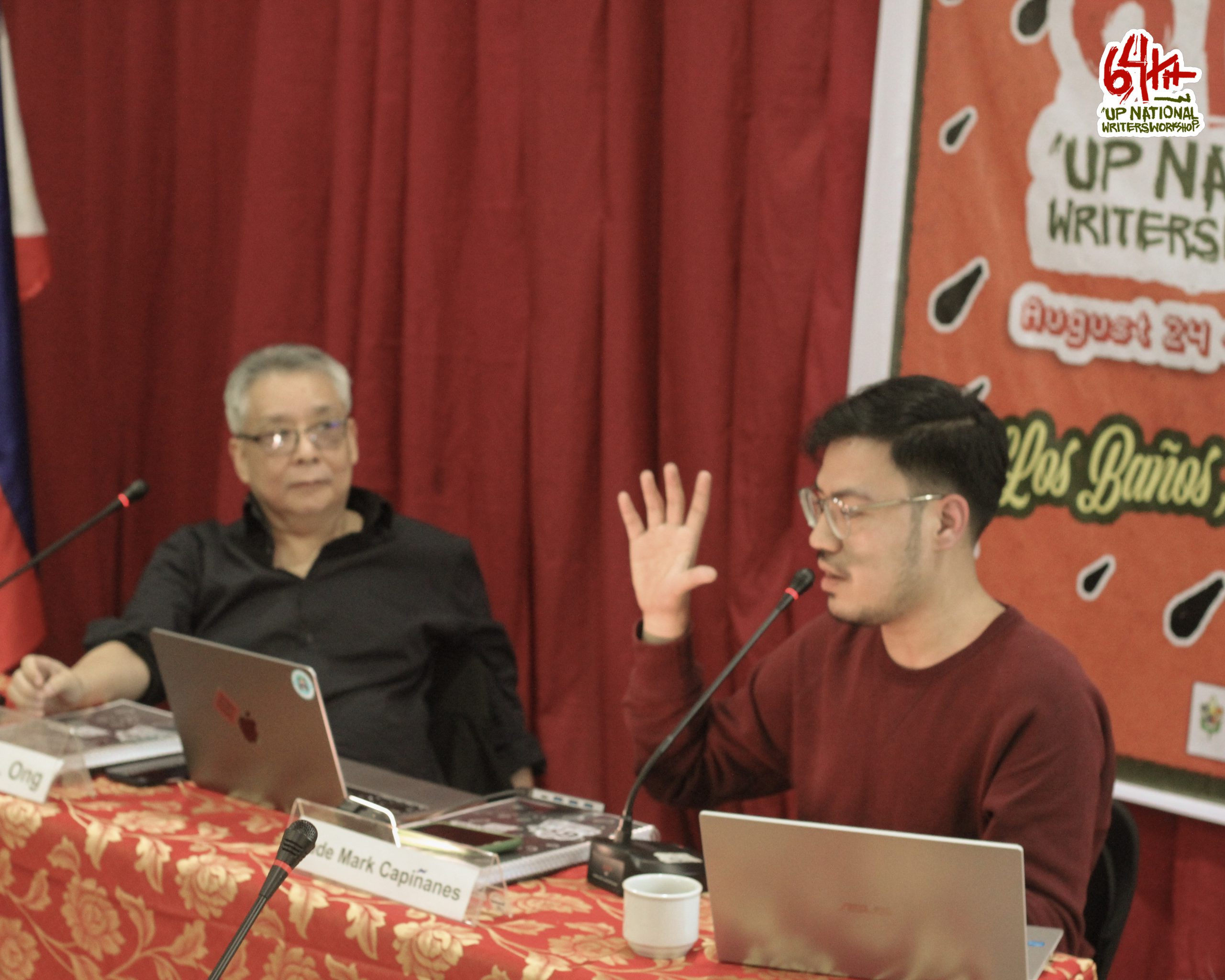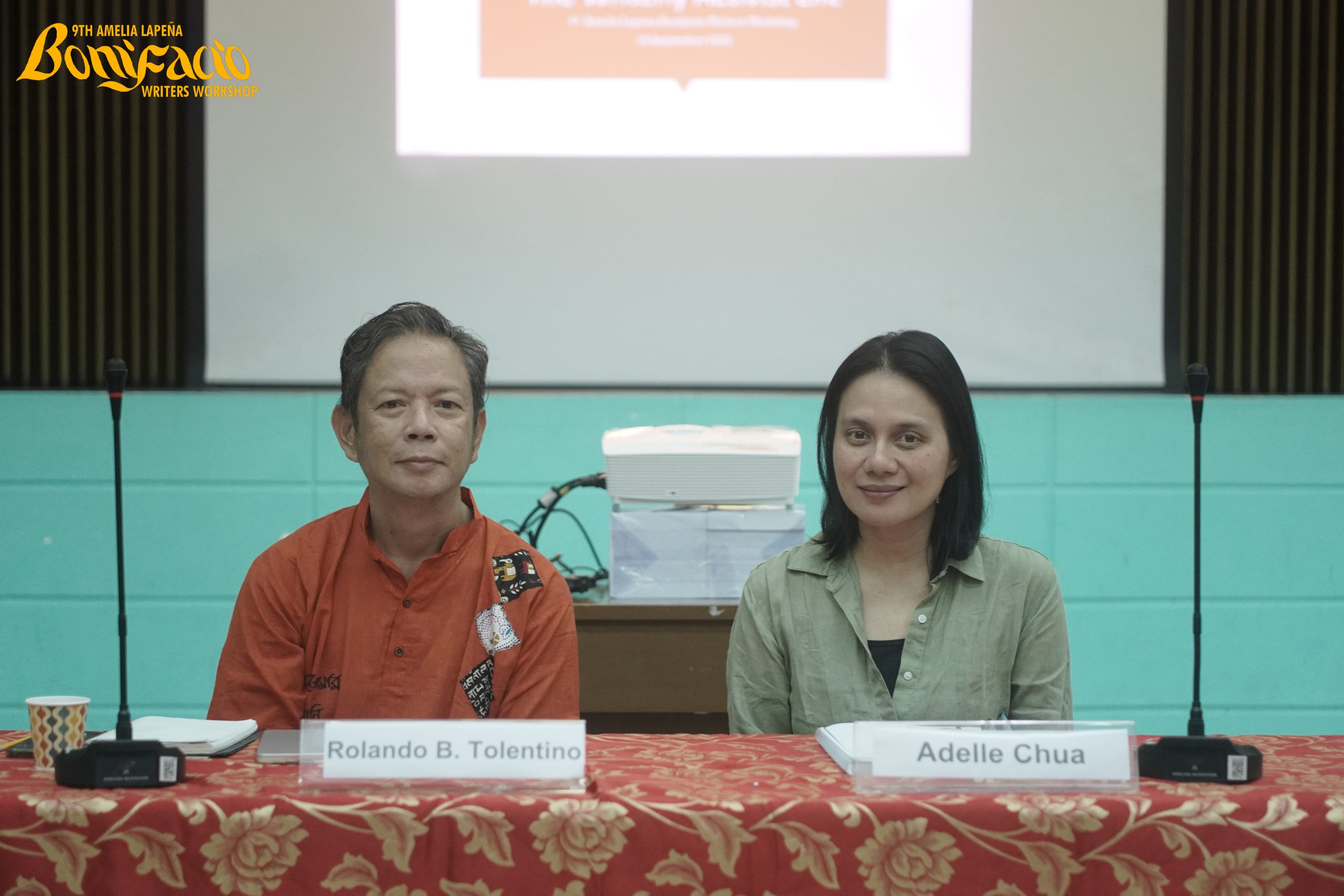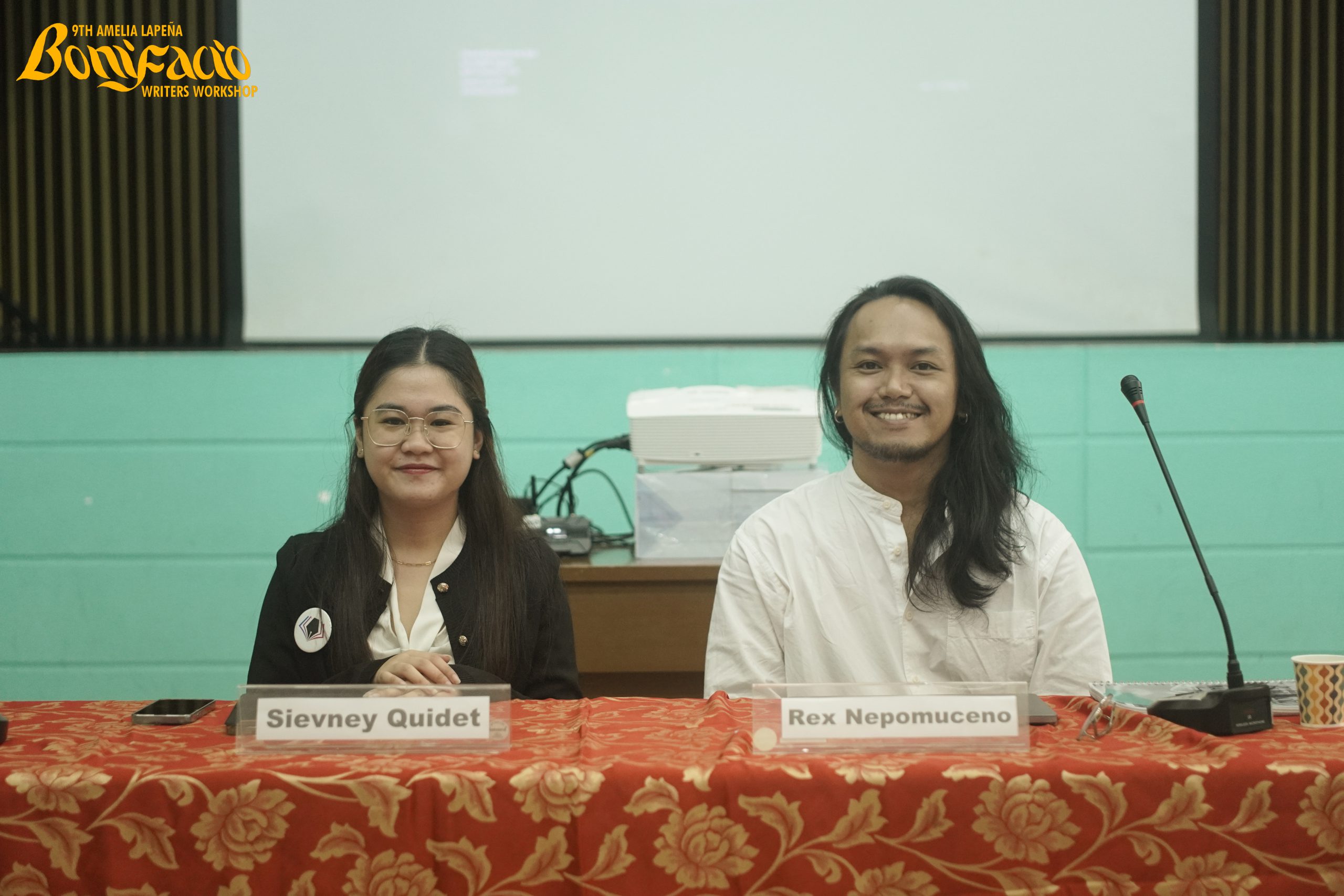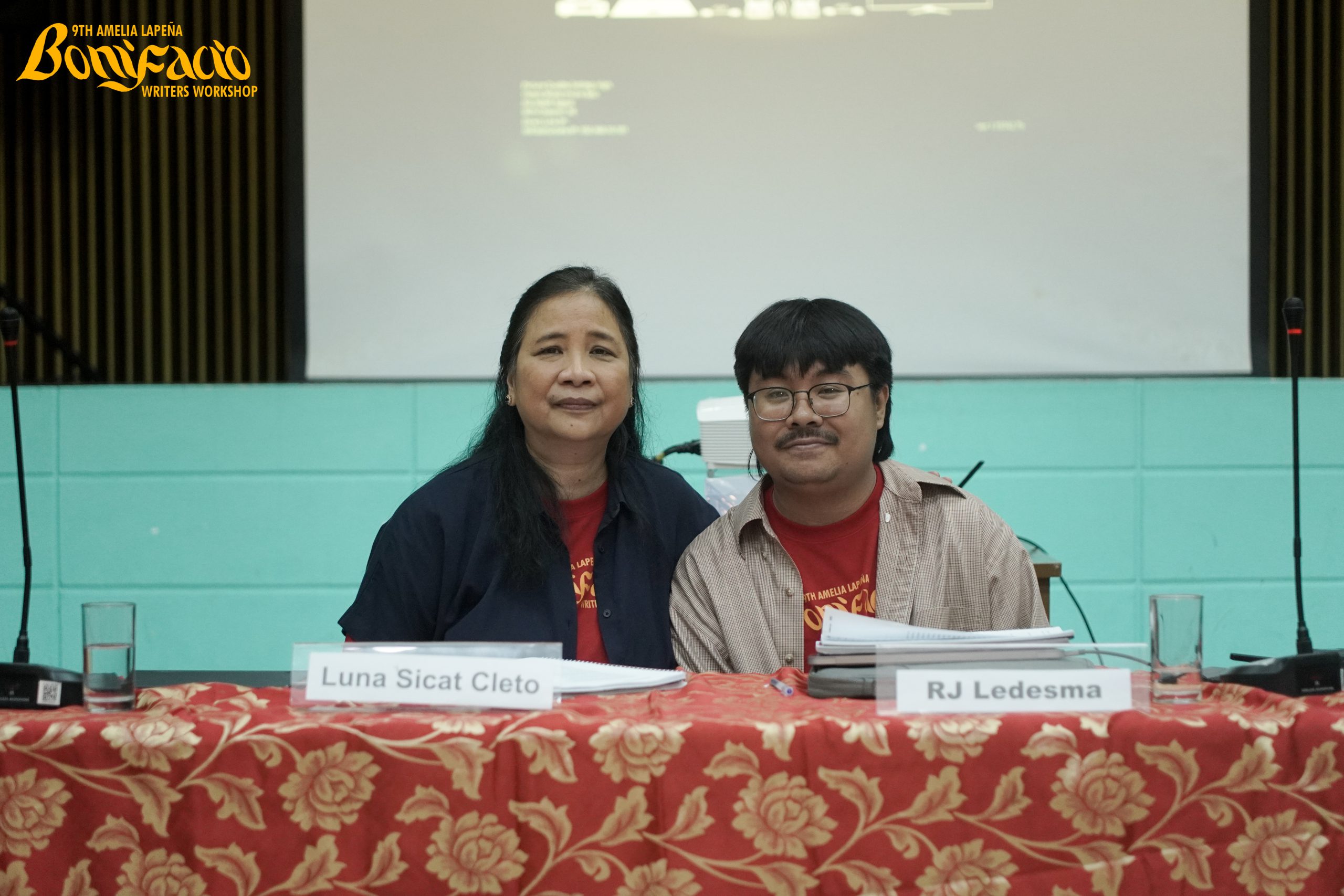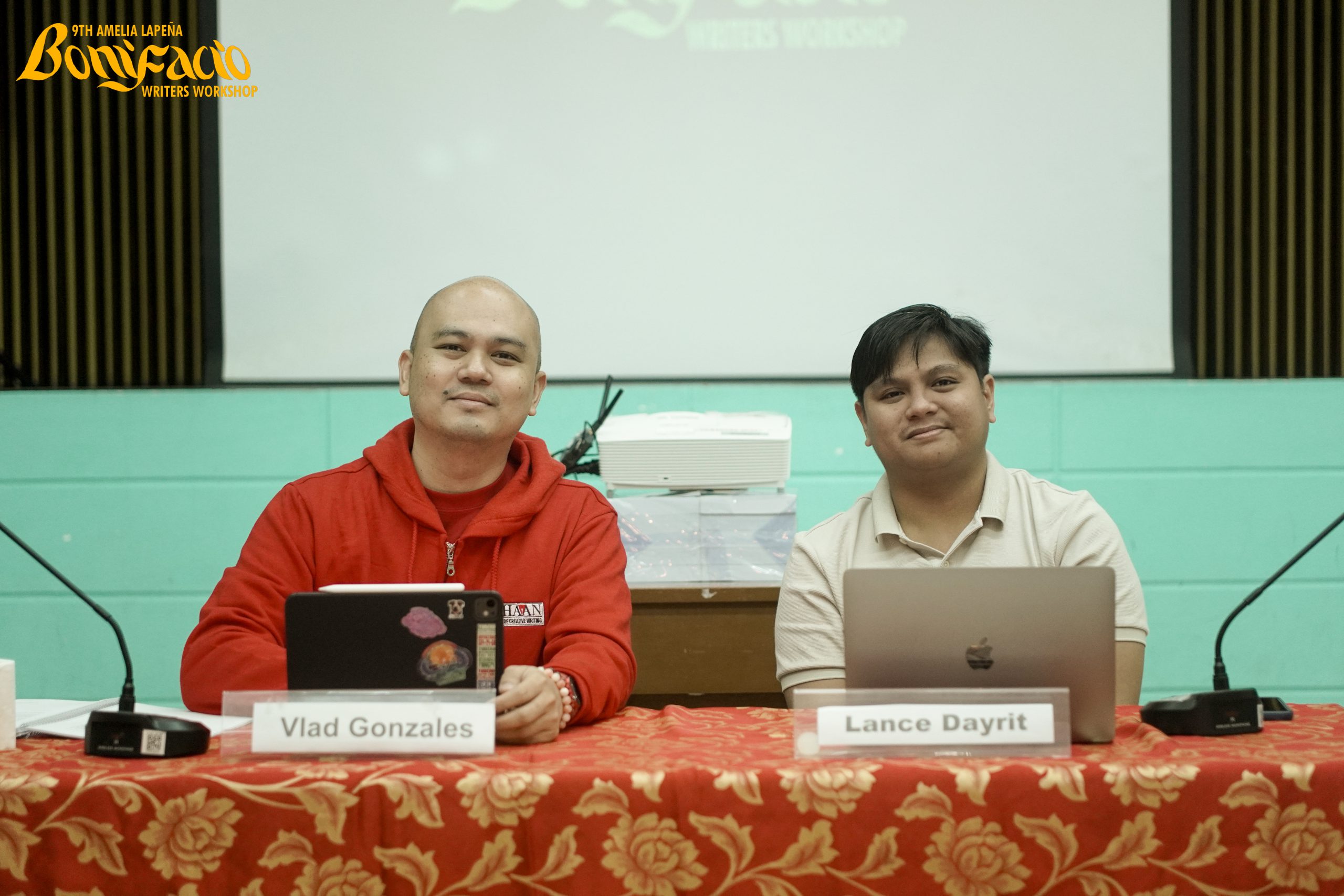Fellow: Jade Mark Capiñanes
Moderator: Charlson Ong
“In literature, evil is always more interesting. You must be interesting and engaging before anything else.”
Dr. Charlson Ong prefaced the session on Jade Capiñanes’ No One to Deliver You with a discussion on the novella-in-progress’ chief concern—the question of virtue, as conceived of in modern (mainly online) spaces of policing and political correctness. He also pointed out how this relates to the work’s depiction of the new, digital economy as seen in character Gina’s work-from-home (WFH) employment. Of Capiñanes’ possibly contentious fixation on controversial matters, Ong sees this as the writer’s sine qua non, that he or she “…must suspect everything and everyone.”
The nucleus of his poetics, as elaborated by Capiñanes, is his wish to problematize how our modern conception of goodness is conflated with “moral obviousness”—the privileging of politically correct opinions, a demonstration or performance as opposed to an embodiment of ideals. He contended that, when a work of fiction’s moral contours are too obvious, it fails to challenge or engage readers on a deeper level. As a writer, therefore, Capiñanes is more interested in centering moral ambiguity in his questioning of what exactly makes or defines a good person.
During the discussion, several of the workshop fellows and panelists took issue with Capiñanes’ overly masculine, straight writing style, considering the issues the work centers are very gendered. In particular, Rayji de Guia expressed frustration with the sparse rendering of domestic space, betraying a lack of spatial awareness and movement. Both her and Dr. Luna Sicat Cleto also criticized the work’s callous, uninformed approach to uniquely female struggles, as seen, for example, in Gina’s miscarriage.
While Elio Garcia appreciated the role of moral ambiguity in Capiñanes’ poetics, he maintained that this ambiguity must be enclosed in the performance of the text—“the writer can play with ambiguity in his writing, but he must come from a clear place.” Dr. Guillermo added that the novella’s concern with virtue needs to be deepened by meta-technological commentary, particularly because of the increased political polarization effected by online spheres—“We have to complexify our adversaries in literature…not to reduce them to caricatures that we can easily swipe left on.”
Next, Dr. Rolando Tolentino and Arnel Mardoquio suggested texturizing the novella, perhaps adding more details regarding its setting of Davao. Localizing the work to such a reputedly fraught, violent city might add profound dimensions to its central themes. Dr. Vladimeir Gonzales, meanwhile, criticized the repartee between characters as stilted and unnatural. He stressed the importance of good dialogue in fleshing out characters and moving the plot forward.
“The best vehicle for a story centered on morality is realism,” Dr. J. Neil Garcia insisted, remarking that his suspension of disbelief while reading the work was stretched to the point of breaking. Apart from the language being “too translated,” there is also a placelessness that must be placed. Krsyta Frost agreed with Dr. Garcia in that the work feels “sterile” and does not interrogate the tension and “stickiness” of the conflict. To close the session, Capiñanes thanked the panelists and fellows for delivering precisely the kind of critical questioning he had been looking for.

